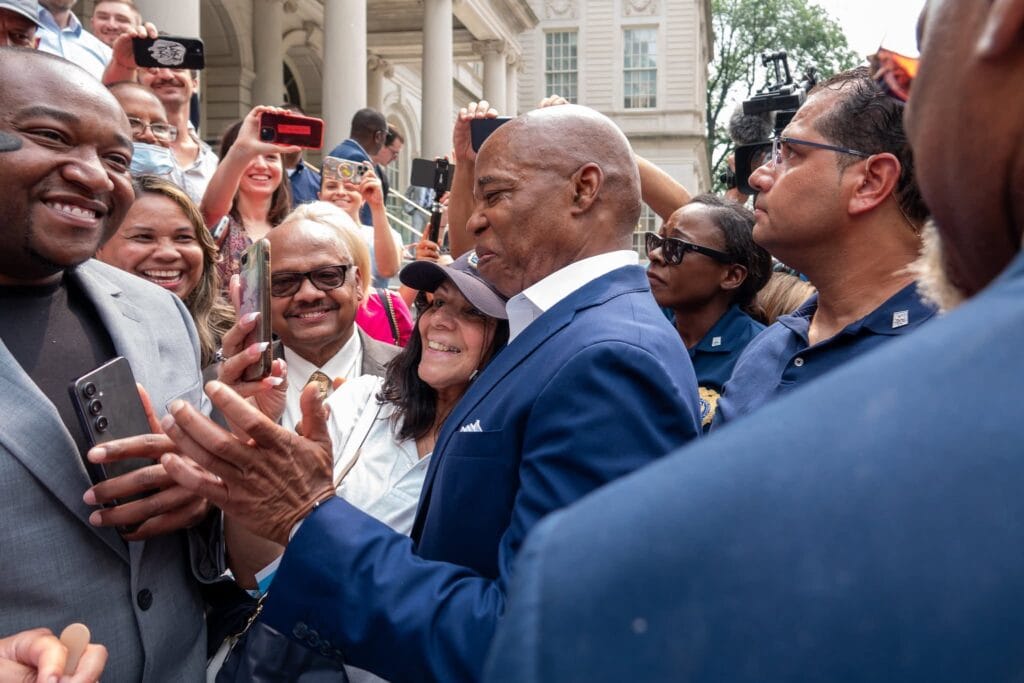Mayor Eric Adams Secures Broad Interfaith Endorsement for Re-election

Over 100 religious leaders from across New York City gathered at City Hall on Tuesday to publicly endorse Mayor Eric Adams for a second term.
The event brought together a broad coalition of spiritual figures — from rabbis and imams to pastors, monks, priests, and representatives of the Rastafarian, Hindu, and Sikh communities.

Expressing gratitude for the moment, Mayor Adams took to social media to share his reflections. “Glory to God: Today was a day that only prayer could deliver — over 100 faith-based leaders from across New York endorsing me on the steps of City Hall this morning,” he wrote.
“There were rabbis and pastors and priests and imams — Buddhist monks, Hindu and Sikh officials and representatives from New York’s vibrant Rastafarian community,” he added, underscoring the spiritual and cultural diversity of the gathering.
Adams, who has long positioned himself as a leader grounded in faith, declared: “New York is a city of faith and I am a Mayor of faith — with deep respect for the transformative power of fellowship and worship.”
He highlighted his administration’s active partnership with religious organizations, stating: “My administration has repeatedly empowered our city’s faith organizations to play a direct role in New York’s most pressing issues — from homelessness to affordable housing. And we will continue this vital work in our next term thanks to the deep support and faith of the leaders who stood alongside me at City Hall earlier today.”
Some of the notable figures who endorsed Adams include Bishop Chantel Wright, Inderjit Singh, Rabbi Shlomo Nisanov, Rabbi Michael Landau, Rabbi Yossi Garelik, Bishop Jose Martinez, Pandit Ravi Doobay, Ras Kamaal Richards, Dr. James Kilgore, Sister Scheril Murray Powell, Bishop Victor Tiburcio, Shi Wai Shee Master, Imam Izak-El Mu’eed Pasha, and Vernel Samuel.
The endorsement signals strong faith-based support for Adams as he seeks re-election, reinforcing his message of spiritual inclusiveness, community-driven governance, and continued collaboration with New York’s religious institutions.














